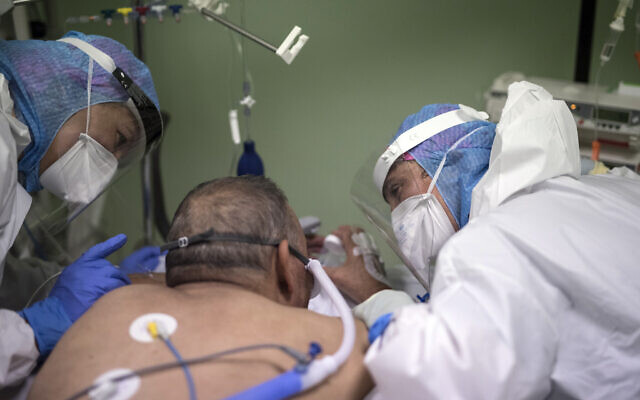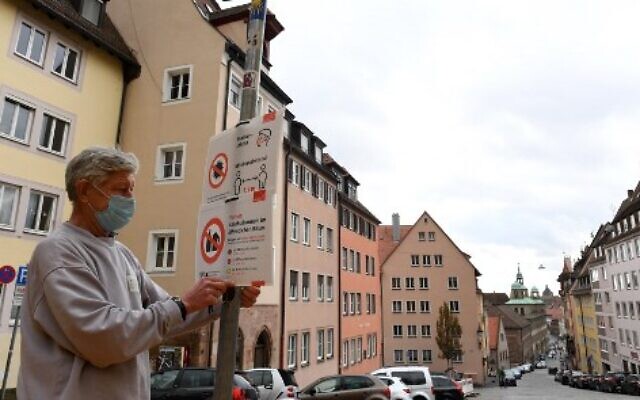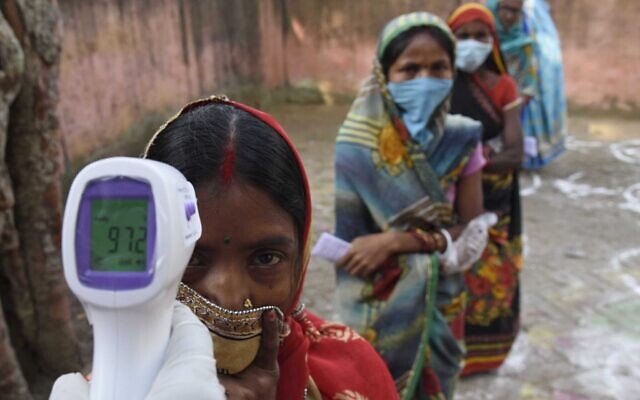
Fresh restrictions come after weeks of exponentially rising new infections across Europe with governments reinstating punishing stay-at-home orders seen during first wave.
France announced a new month-long national lockdown and Germany imposed drastic new curbs on people’s daily lives as the EU’s biggest countries admitted that hospitals would soon be overwhelmed by patients suffering from coronavirus.
The dramatic lockdown decision from French President Emmanuel Macron came after weeks of exponentially rising new infections across Europe that have forced governments across the continent to contemplate reinstating the punishing stay-at-home orders seen during the first wave in March and April.
Ireland had already locked down again last week, and France’s move will likely lead to pressure on other governments to follow suit, including Britain’s.
Bars and restaurants are to be closed until at least the start of December, travel between regions will be limited, and citizens will need an authorization form to leave their homes, he said. But creches, schools, factories, and building sites will remain open.
“As elsewhere in Europe, we are overwhelmed by a second wave that will probably be more difficult and deadly than the first,” Macron said.

“If we did nothing… within a few months we would have at least 400,000 additional deaths,” he added.
Record number of new cases
Many epidemiologists have been warning for weeks that European governments have lost control of the latest outbreaks, making lockdowns almost inevitable as a last resort in what has become the global epicenter of the second wave of the coronavirus pandemic.
New cases have been doubling every week or so, while track-and-trace and mass-testing systems that were promised after the first wave have been quickly overwhelmed.
Reflecting the bleak outlook, and with the seasonal winter flu season still ahead in the northern hemisphere, European and US stock markets tumbled as investors fretted over how the new measures will further hurt the economy.
In Germany, Chancellor Angela Merkel ordered a new round of shutdowns for the cultural, leisure and food and drink sectors from Monday November 2 until the end of the month, although Germans will not be confined to their homes.

Bars, cafes and restaurants must close, as well as theatres, operas and cinemas. Hotel stays are to be restricted while professional sports, including Bundesliga football, is set to be been pushed back behind closed doors.
Backlash
One of the biggest concerns for European governments is weariness and anger among voters over the new restrictions, which have caused huge economic problems for business owners and employees, as well as mental health problems.
A backlash against closure orders in Italy widened on Wednesday following several nights of occasionally violent protests in cities such as Rome, Milan and Naples.
Scores of chefs and restaurateurs joined a rally in central Rome at lunchtime, kicking off protests in 24 cities organized by a business federation against rules forcing restaurants, bars, gyms and other businesses to close their doors at 6:00 pm.

Far-right and nationalist politicians ramped up their attacks on Prime Minister Giuseppe Conte, accusing him of sacrificing the economy for measures that will not save Italy from the virus.
In France, Macron has been repeatedly denounced by far-right leader Marine Le Pen, his most likely challenger in the next presidential election in 2022.
In Belgium, meanwhile, which has the most cases per capita in the world, the number of coronavirus hospital admissions has almost matched the level in the first wave in March and April, a public health institute said.
Medics in one hospital in Liege are so overstretched that some staff who are themselves infected with Covid are continuing to treat patients.
Prime Minister Alexander de Croo could announce more stringent measures soon.
‘A big day for us’
Across the world, the coronavirus has infected more than 44 million people, with close to 1.2 million deaths.
In India, millions turned out Wednesday to vote in state polls in Bihar despite tens of thousands of new cases every day in the world’s second-most infected nation.

Some booths were packed out and many ignored government advice on wearing masks and social distancing, AFP journalists witnessed.
Over in the sporting world, football star Cristiano Ronaldo was furious when he was left out of Juventus’ team for Wednesday’s Champions League clash against Barcelona in Turin, as he continued to test positive for coronavirus. Juventus lost 0-2.
And as the race to find a treatment or cure gathered pace, pharma giant Pfizer voiced measured optimism Tuesday about the prospect of a vaccine becoming available this year.
(Times of Israel / AFP).